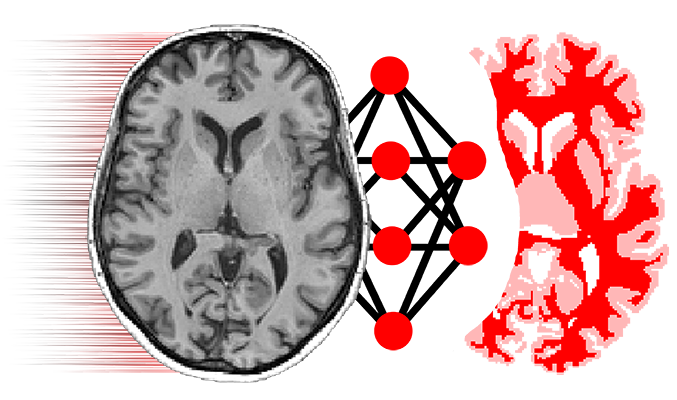Source code for niftynet.engine.handler_gradient
# -*- coding: utf-8 -*-
"""
This module implements a network model updater with gradient ops.
"""
import tensorflow as tf
from niftynet.engine.signal import ITER_STARTED, GRAPH_CREATED
from niftynet.layer.bn import BN_COLLECTION
from niftynet.utilities import util_common
PRIMARY_NAME_SCOPE = 'worker_0'
[docs]class ApplyGradients(object):
"""
This class handles iteration events to update the model with gradient op
(by setting iteration message with a 'gradients' op at the beginning of
each iteration).
"""
def __init__(self, is_training_action=False, **_unused):
if not is_training_action:
return
GRAPH_CREATED.connect(self.make_gradients_op)
ITER_STARTED.connect(self.add_gradients)
[docs] def make_gradients_op(self, sender, **_unused):
"""
Making ``optimiser.apply_gradients`` ops.
:param sender: a niftynet.application instance
:param _unused:
:return:
"""
with tf.name_scope('ApplyGradients'):
gradients = sender.gradients_collector.gradients
bn_ops = tf.get_collection(BN_COLLECTION, PRIMARY_NAME_SCOPE)
if not bn_ops:
sender.gradient_op = _apply_multiopt_gradients(
sender.optimiser, gradients)
else:
with tf.get_default_graph().control_dependencies(bn_ops):
sender.gradient_op = _apply_multiopt_gradients(
sender.optimiser, gradients)
[docs] def add_gradients(self, sender, **msg):
"""
Event handler to add gradients to iteration message ops_to_run.
See also
``niftynet.application.base_application.set_network_gradient_op``
:param sender: a niftynet.application instance
:param msg: an iteration message instance
:return:
"""
if msg['iter_msg'].is_training:
msg['iter_msg'].ops_to_run['gradients'] = sender.gradient_op
def _apply_multiopt_gradients(optimiser, gradients):
"""
Apply gradients by using the corresponding optimiser.
This function sets ``self.gradient_op``.
:param optimiser: single optimiser or dict of optimisers
to be used to process the passed gradients
:param gradients: list or dict (having a reference to the optimiser used)
of processed gradients from the gradient_collector
:return:
"""
if isinstance(gradients, dict):
ret = list()
for key in sorted(gradients):
optimiser_k = optimiser.get(key) \
if isinstance(optimiser, dict) else optimiser
if not optimiser_k:
tf.logging.fatal('No optimizer found for %s', key)
raise ValueError
ret.append(_apply_gradients(optimiser_k, gradients[key]))
return ret
return _apply_gradients(optimiser, gradients)
def _apply_gradients(optimiser, gradients):
"""
Apply gradients op by ``optimiser.apply_gradients``.
:param optimiser: single optimiser processing the passed gradients
:param gradients: processed gradients from the gradient_collector
:return:
"""
grad_list_depth = util_common.list_depth_count(gradients)
if grad_list_depth == 3:
# nested depth 3 means: gradients list is nested in terms of:
# list of networks -> list of network variables
return [optimiser.apply_gradients(grad) for grad in gradients]
elif grad_list_depth == 2:
# nested depth 2 means:
# gradients list is a list of variables
return optimiser.apply_gradients(gradients)
raise NotImplementedError(
'This app supports updating a network, or a list of networks.')
